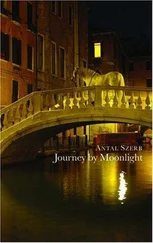This was the Fludd through whom I had befriended the Earl. Truly speaking, I owed the invitation to him. At this stage I had no idea that all this ancient material, and all these names that had meant so little to me — Pendragon Castle, Asaph Pendragon — would come to play such an extraordinary part in my life.
From a collection of North Wales folklore I learnt that the legend of Asaph Pendragon began soon after his death. It speaks of him as a midnight horseman, never leaving the castle by day, setting out only at night, with a carefully chosen band of followers, to gather plants with magical properties by the light of the moon. But such prosaic purposes were not enough to satisfy popular imagination, and the story grew that the terrifying night horseman had been out dispensing justice, an attribute he retained even after his death.
By night he would catch robbers sharing out their booty in secret dens, and next morning, to their utter amazement, the victims would find their treasures returned. The felons had been so astonished by the apparition that they kept every one of the undertakings extracted by him, and died soon after.
The most gruesome of these histories concerns three murderers. The volume I held in my hands tells it rather well.
Once, in a Welsh mountain inn, three young noblemen killed and robbed a Jewish doctor on his way to join the Earl in his castle. The court, which in those times might well be suspected of anti-Semitism, acquitted the men, and they set sail for France. That night some peasants watched with awe as the night rider and his retinue turned to the south, galloped up the rocky slopes of nearby Moel-Sych and soared into the sky in a southerly direction. The next day the three noblemen were found in the castle moat, their limbs crushed and their necks broken. The Earl had meted out the justice due to his intending visitor.
At eleven I went for a coffee. My neighbour tagged along.
“Jolly good read,” he said of Kim : “amazing book. Chap who wrote it must have been there. Really knows the place.”
“You’ve been to India yourself?”
“Of course. There as a kid. Grew up there. And in Burma. Then South Africa and Rhodesia. Not a bad place, Rhodesia.”
Once again I felt that deep sense of awe I always experience when I come up against the British Empire. These people nip over to Burma the way we do to Eger. Only, they’re less curious about it. They know that wherever they go in the world they will be among exactly the same sort of people as themselves.
“Actually, my old man was a major in an Irish regiment,” he continued. “Stationed all over the place. That’s why I missed out a bit on my education. Things to do with books and so forth. But it’s also why I did so well in the tropics.”
“You were a soldier too?”
“No. I never quite made it into the army. I have this bad habit of failing exams. Some of them I must have had five goes at … But I never got lucky. But forget about that. What’s done is done. We Irish live for the future. I didn’t become a soldier; not everyone can be a soldier. I just loafed around wherever I wanted in the Empire. Not a bad place to be. Have you heard of the East African Uwinda expedition?”
“Yes, as I recall … ” I said, scrambling to salvage my self-respect.
“I was in it. We were over nine thousand feet up. Fantastic climbing. There was one mountain, I tell you, with sides like glass. You moved up three feet and slid back five. We slithered around for two whole days and got nowhere. I said to the Colonel:
‘Look here, sir, are we from Connemara, or are we not?’ Because you know, that’s where I’m from,” he explained, with deep reverence. Then he continued:
‘True,’ says the Colonel (a typical patronising Englishman): ‘we’ve even had one or two chaps from there who were sane.’
‘Well,’ I said to him, ‘I’ll show you who’s sane.’ I fitted one of those lightweight climbing ropes on to the camp cat, round its waist. I fixed the doctor’s surgical clamps tight on its tail, made the blacks stand in a ring around the base of the slope, and the cat shot off, all the way up to the top. Amazingly good at that sort of thing, cats.
Up at the top, there was a tree. The cat skimmed up the tree and thrashed around among the branches. Then it stopped, because the rope had got thoroughly tangled up and was holding it fast. I tugged for a while on the rope to see how firmly it was attached to the tree. Then I climbed straight up, removed the clamps from the cat’s tail — no point of inflicting unnecessary pain on poor dumb animals — and hauled the whole party up after me.”
I gazed in wonder at this Münchausen and began to question whether he’d ever been near the tropics. But he was an agreeable young chap. He was practically chinless, his arms were uncommonly long, and he moved with the ease and grace of an animal. Altogether he seemed somewhat closer than most to our primal nature.
By the time we got back to the British Museum the usual old madwoman was already centre stage in the garden outside the entrance, giving the pigeons their midday feed. As ever, her face was transfigured with the joyous smile of a Franciscan saint soaring up to Heaven. Around her you could see nothing but pigeons. Her whole person was smothered in pigeons. Three sat on her head, five on each shoulder, and countless numbers clung to her dress. I could tell that she fancied herself as saintly as Francis himself, and she filled me with loathing.
“I’d like to shoot her,” I said to my new friend, as we ascended the stairs.
Almost as I said this, he spun round and hurled a large pebble — I didn’t even see him pick it up — which hit her a glancing blow on the nose, a full fifty metres away. She uttered a powerful scream and dropped the pigeon feed, the birds took flight and the woman collapsed. She had clearly never reckoned on being hit by lightning while performing the great good deed of her life. Her sense of a moral universe must have collapsed with her in that moment.
Maloney continued walking, very calmly. The whole thing had happened so quickly that, apart from myself, no one had seen who did it.
“What was all that about?” I asked in amazement when we got inside the foyer. We were standing in the half-light, under the bearded heads of Assyrian kings some four thousand years old.
“Why do you ask? You yourself said you could shoot her. But all you can do is talk. You aren’t from Connemara.”
From that point on, and after what followed later, I became inclined to believe about half of the impossible yarns Maloney spun. And I could see that Connemarans weren’t quite like anyone else.
We returned to our reading for a while.
The seventh Earl, and those following him down the century, were relative nonentities. It was as if the memory of the great Asaph had cast a shadow of dullness over them. The tenth Earl moved away from the ancestral seat at Pendragon and built the castle at Llanvygan, the family home since 1708, which has been so much praised for its beauty.
With the move away from dismal Pendragon, the family history took a brighter turn. Throughout the eighteenth century, like every other noble house, it produced distinguished admirals, diplomats and minor poets, and the enigmatic shadow of Asaph appeared to have been lifted. Or not entirely. The thirteenth Earl requires a mention.
This gentleman, despite his unfortunate number, was the most convivial and thoroughly human character in the whole saga. He was the only Earl who had affairs with actresses, the only one who knew how to drink, and the only one who could crack a good joke in company.
One of these jokes was considered particularly witty in its time, though it is difficult now to see exactly where its humour lies. He was told one day, while at cards, that his mistress — whom he had raised from the level of a simple orange-seller — had run off with the fencing master, taking a significant quantity of the family baubles with her. His sole response was, “Every good deed gets the punishment it deserves,” and he carried on with the game.
Читать дальше












